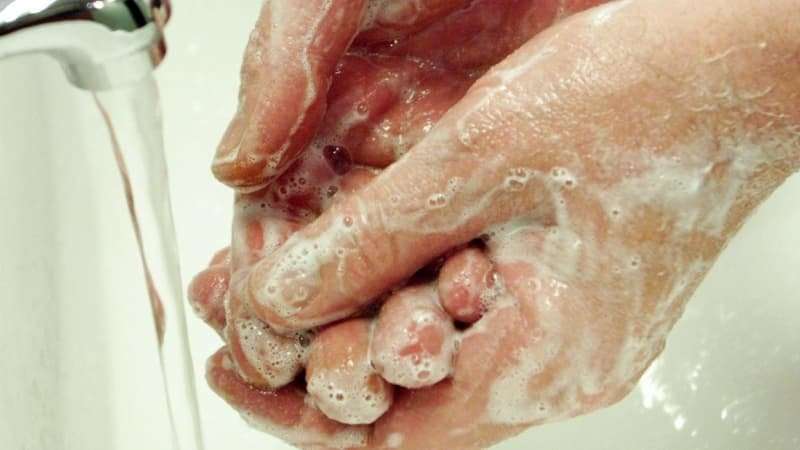Doctors and nurses at a major Sydney hospital failed to properly wash their hands when no one was watching, risking patients' lives, a new study found.
Researchers from University of NSW found the staff's hand-washing compliance rate dropped from 94 per cent to 30 per cent when human auditors stopped monitoring their behaviour and automated surveillance kicked in.
Hand hygiene is important for infection control. Photo: Michele Mossop
They are calling for an overhaul of the auditing system, which may still require human auditors because automated surveillance and reminder technology are expensive, and the re-education of hospital workers about the importance of hygiene.
"Hand hygiene is the keystone to infection control that prevents healthcare workers from being colonised with a potentially life-threatening disease; that reduces hospital-acquired bloodstream infections that can kill up to 20 to 30 per cent of patients," lead author Mary-Louise McLaws said.
"Healthcare workers know how to respond when they’re being watched, but the rest of the time they go back to a dangerous level and I don’t blame them, no one's watching."

Aesculapius1 on July 7th, 2018 at 17:57 UTC »
Chief Medical Officer here. I am also the chair of our infection prevention team.
This study was based on the World Health Organization 5 "moments" for hand hygiene found here. They list the times when you should wash your hands either with an alcohol based wash (purell) or with regular soap and water. The moments are:
Before Patient Contact (e.g. entering the room) Before an aseptic task (e.g hooking up an IV, changing a dressing) After body fluid exposure (even if wearing gloves) After patient contact (e.g. after touching the patient but before using the computer in the room) After contact with patient surroundings (e.g. leaving the room, touching their bedding, etc)As you can see, these 5 moments could add up to several instances of washing hands during the patient visit. There is also a measurement bias here too. What if a nurse is entering the room to hook up a new IV medication? They have to wash upon entering the room and then, even though the purell is not yet dry on their hands, wash again before hooking up the new IV medication.
MANY hospitals are struggling with these moments. They are great in theory, but operationalizing them in a way that makes sense and then measuring based on that is a challenge.
This article gives the slant that docs and nurses don't care. Of course they do. But if you are trying to reach a standard that these moments set, and the auditor is standing in the room, you would of course try to meet every single step. Even if that means using the purell twice in a row when that makes no sense. Take the auditor away and these duplications, and thus "compliance" go down.
The medical profession in general is trying to find that balance right now in this regard. Keeping patients safe from healthcare disease transmission is of utmost importance. Finding the right way to do it (effective and reasonable) has yet to be found.
Edit: abbreviation correction
NassemSauce on July 7th, 2018 at 12:29 UTC »
It’s bad, but it may not be as bad as you think. I dunno how they track their numbers, but we do something similar at our hospital, and for it to count, you have to use the Purell before you enter, and after you leave the room.
If I were to enter the room and use the sink to wash my hands (instead of the Purell outside the room), and do the same on the way out, it wouldn’t count. If I were to leave a room, Purell, and go into the adjacent room, it wouldn’t count because I didn’t do a separate one before entering. If a patient had a question and I popped my head in to talk with them but not touch or examine them, but I didn’t Purell before going in and coming out, I am in violation of the hand hygiene policy. FWIW, I’m very strict about hand hygiene personally, and will Purell before/after entering a room no matter what, but just wanted to shed some light that 30% may not mean what you think it means.
GerrardsClaw on July 7th, 2018 at 10:39 UTC »
Nightingale would be turning in her grave